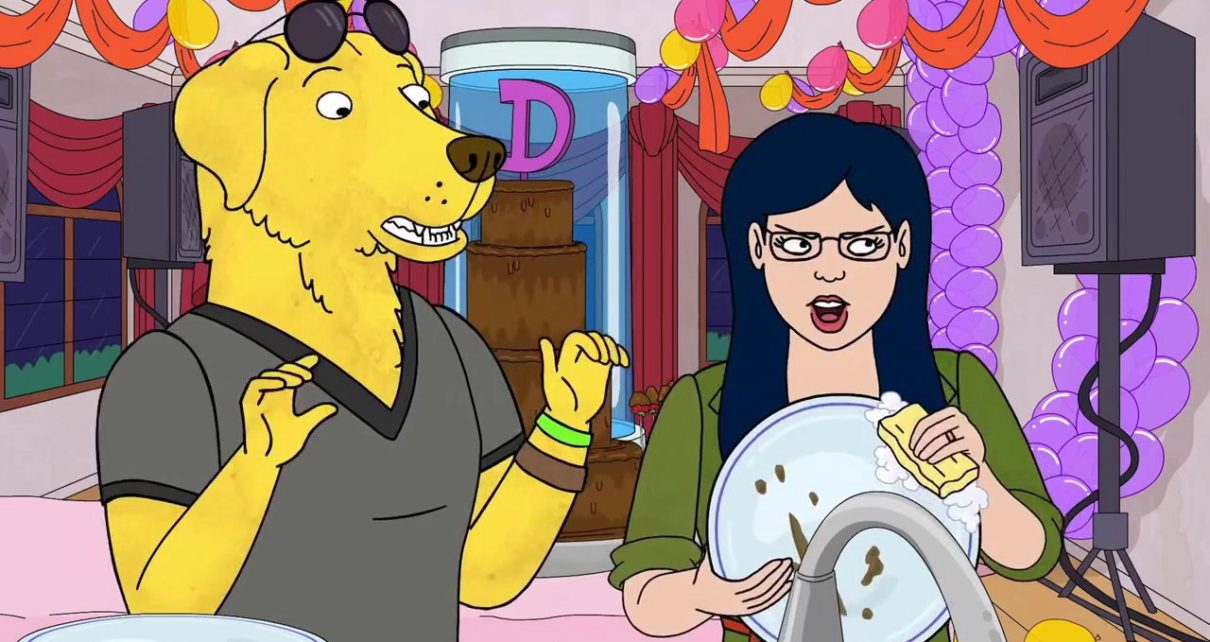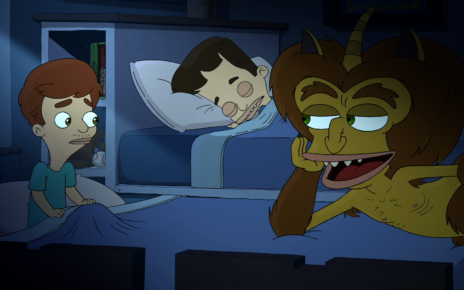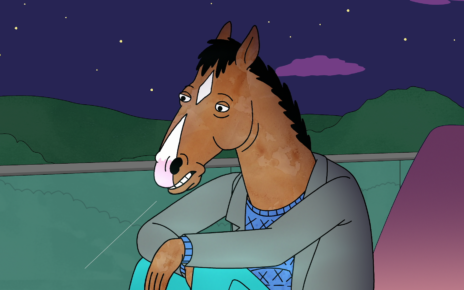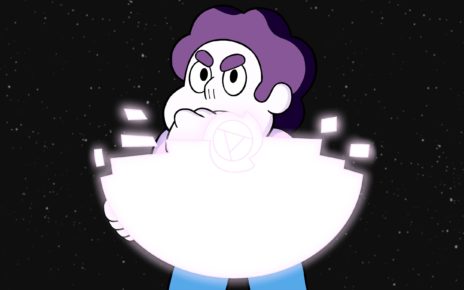
This post contains spoilers for BoJack Horseman Season 4.
We Americans admire dogs. We admire their faithfulness. Their steadfastness. Their gentle dispositions. Their joy at the simple things in life—food, sleep, a good head-scratch. Their…well, doggedness.
And there’s much there to be admired. (Although doggednes is…not always a good thing!) But for the most part, people—with their self-awareness, and their ability to self-reflect—can’t be dogs. They can’t simply revel in existence with no catches to it. When our self-worth and the value of our existences are tied inextricably to the appreciation of others, we cannot last. We break, in anger and exhaustion. And we destroy, in our desperate attempts to be loved and adored by loving with abandon, those relationships that provide us with that affection in the first place.
To call the choice to cast Paul F. Tompkins as an anthropomorphic yellow Labrador retriever “inspired” is to undersell just how brilliant that choice was. For many, Mr. Peanutbutter seemed, across BoJack’s first three seasons, to be by the most together character in BoJack’s cast, and Tompkins’s earnest, eager energy sells that illusion wholesale. He’s sweet! He’s funny! He’s cluelessly filled with joie de vivre! His tongue and ears are endlessly endearing!
And look at who we have to compare him to, after all. BoJack and Diane are self-indulgent messes of depression and insecurity, Princess Carolyn is a lonely and self-denying workaholic, and Todd’s a shiftless mooch.
But dogs can’t be people, and people can’t be dogs. As such, a dogperson is shouldered, however subtly, with an impossible burden—having to both sustain rational thought, like a human, and love unconditionally, like a dog.
Mr. Peanutbutter does what he can with what he has been given. He often seems vapid, but such is the lot of of one tasked with needing approval at any cost yet yoked to his facility to conceptualize that cost to self and others. He avoids that conceptualization, though, because to acknowledge it would be to acknowledge the impossibility of achieving the only thing he truly desires, and the only thing he wishes to give to others: unconditional love. It’s an addiction as real as booze or dope. It’s just less tangible, and harder to explain. In some ways, it may even be harder to quit. That makes it, in its own way, even more dangerous.
Because here’s the thing about unconditional love between people: it almost doesn’t exist. Those who have needs, no matter how deeply they bury them, inevitably have conditions to their affections. And to sustain those affections for those around you requires thoughtful, dedicated work from all parties involved. Not impulsive gestures, or oblivious sincerity, or an unflappable sweetness of disposition. Love is labor. And there’s nothing more rewarding than a good day’s work.
Mr. Peanutbutter, in this, errs on the side of dog, not human. He is the physical incarnation of a licked face. And while that is the greatest reward of all from an unthinking ball of fur and joy that is a dog, it isn’t enough from a friend, from a colleague, or from a spouse.
That’s why Diane and Mr. Peanutbutter struggle in their relationship so often—and why, in the season four finale, both they and we as an audience are finally made to admit to ourselves that their relationship is doomed to fail. Because no matter how pure the motivation is behind grandiose gestures like building an entire Beauty and the Beast library for our partner on a whim, the true measure of love isn’t in what you give. It’s in knowing when not to just run in and lick that face—and knowing when, instead, to ask.

Thanks for reading The Dot and Line, where we talk about animation of all kinds. Don’t forget to ❤ this article and follow us on Twitter and Facebook.





